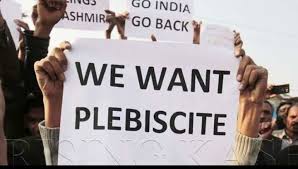Kashmir: An established int’l dispute despite India’s claims of internal matter
#KashmirNotInternalMatterOfIndia
 Srinagar: Jammu and Kashmir’s status as an international dispute is an established fact, regardless of India’s assertions that it is an internal matter.
Srinagar: Jammu and Kashmir’s status as an international dispute is an established fact, regardless of India’s assertions that it is an internal matter.
According to Kashmir Media Service, experts in the region emphasize that the Kashmir issue remains a critical item on the United Nations Security Council (UNSC) agenda, supported by historical agreements and treaties.
Since 1948, the Kashmir dispute between Pakistan and India has consistently appeared on the UNSC agenda. Resolutions from the Security Council affirm the international nature of this conflict, underscoring that Kashmir is not merely a bilateral issue but one that requires global attention. The presence of UN military observers in Jammu and Kashmir further highlights the international dimensions of this dispute.
Critics argue that India cannot unilaterally remove Kashmir from the UNSC agenda without addressing the issue in accordance with the aspirations of the Kashmiri people. They assert that the Indian government has systematically undermined the rights of Kashmiris to determine their own future, as mandated by various UN resolutions.
“The actions of the Modi regime, particularly after the abrogation of Article 370 on August 5, 2019, are viewed as violations of international law and UN resolutions,” experts say. Plans to alter the demographic composition of Indian illegally occupied Jammu and Kashmir are perceived as efforts to entrench control over the region, jeopardizing the prospects for lasting peace. Additionally, ongoing elections in IIOJK have been described as sham polls, lacking the legitimacy of a genuine self-determination process that the Kashmiri people deserve. The denial of the right to self-determination is seen as a central factor perpetuating the Kashmir conflict.
Experts maintain that any dialogue regarding the future of Jammu and Kashmir must prioritize the aspirations of its people, as outlined in international agreements. “The call for a plebiscite, as stipulated in UN resolutions, remains a legitimate demand that has yet to be addressed,” they assert, noting that India’s obstinacy has become a significant hurdle in this regard.
The silence of the international community is viewed as enabling India’s hegemonic ambitions in South Asia, which could further destabilize the region. Advocates argue that lasting peace in South Asia is contingent upon a fair and just resolution of the Kashmir dispute, in accordance with international norms and principles.








